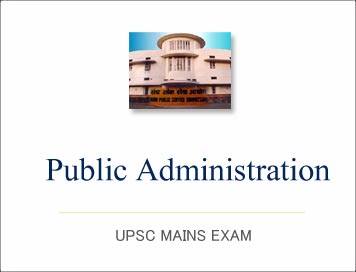Public Administration Mains 2018 : Solved Paper Public Administration : Paper-1-Question-5

Public Administration Mains 2018 : Solved Paper Question Paper-1 (Question-5)
SECTION-B
Q5. Answer the following questions in about 150 words each:
(a) "The Journey of Administrative Law has moved much beyond A. V. Dicey.” Comment. (Administrative Law)
ANSWER: A. V. Dicey gave following three postulates of rule of law: 1. Everyone is equal before the law. 2. Sanctions have to be backed by law. 3. Supremacy of court is ambivalent in civilized society. Though the first two principles are still in almost every legal system of world, the third principle was protested many of jurists of that time. Dicey's view and proposition of rule of law has succeeded in part and wasn’t sustainable on other. Most of the modern legal system implements the principles of judicial review and similar principles of proportionality and legitimate expectations. Dicey's views on written and unwritten constitutions are subject to much debate and discussion. The modern administrative law is fine mixture of Droit Administratif, the French law system and Dicey rule of law.
(b) Edward Gibbon, the author of Decline and Fall of the Roman Empire remarked : "Corruption, the most infallible symptom of Constitutional liberty." Critically examine this statement. (Accountability and Control)
ANSWER: ONLY FOR PAID MEMBERS
(c) To what extent has e-governance made the administrative system more citizen-oriented ? Can it (e-governance) be made more participative ? (Techniques of Administrative Improvement)
ANSWER: e-governance is the application of information and communication technology (ICT) for delivering government services. e-governance is government-to-citizen (G2C), government-to-business (G2B), government-to-government (G2G), government-to-employees (G2E) as well as back-office processes and interactions within the entire government framework.
Through e-governance, government services are made available to citizens in a convenient, efficient, and transparent manner. Two-way communication allows citizens to instant message directly with public administrators, and cast remote electronic votes (electronic voting) and instant opinion voting. Services such as name or address changes, applying for services or grants, or transferring existing services are more convenient and no longer have to be completed face to face. Transactions such as payment of services, such as city utilities, can be completed online or over the phone.
